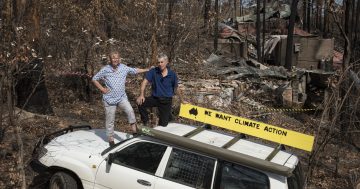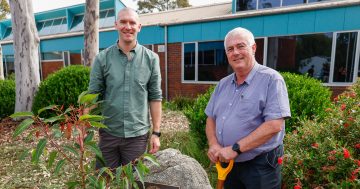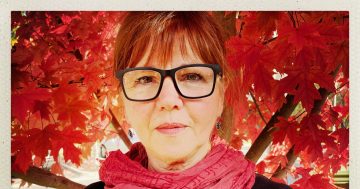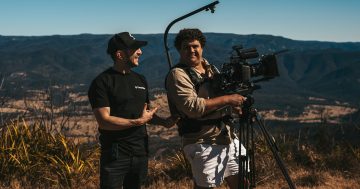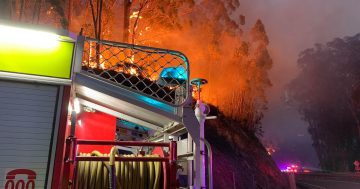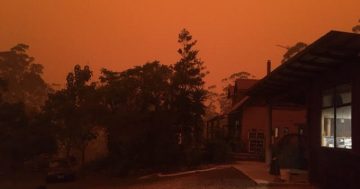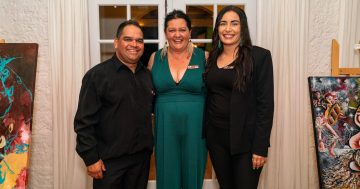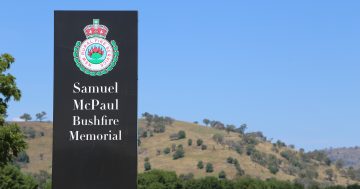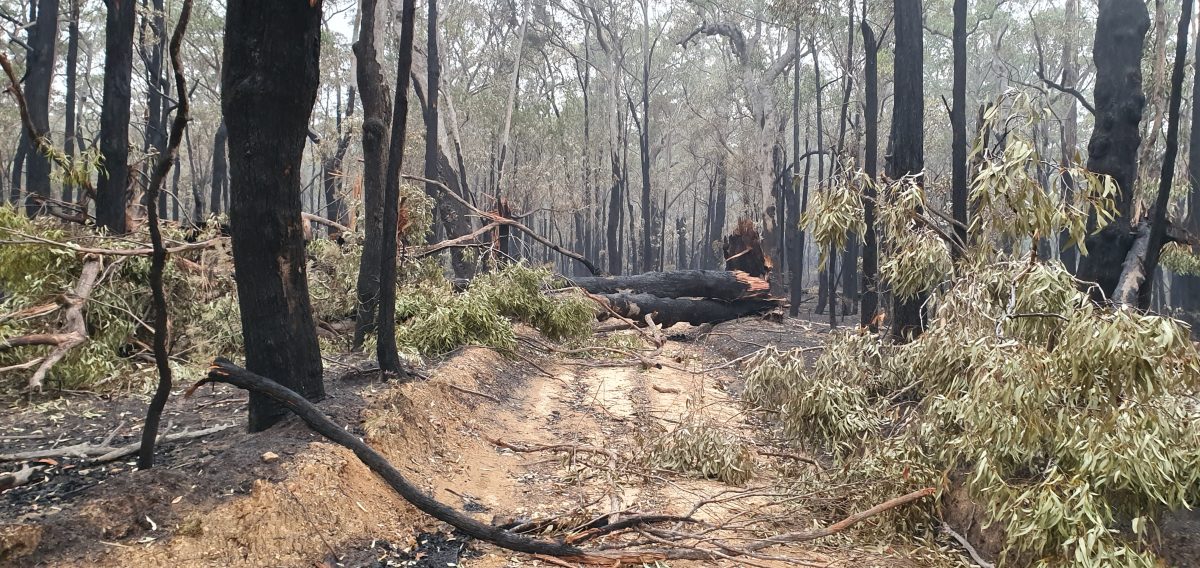
A road blocked by fallen trees in the aftermath of the Currowan fire. Photo: Kerrie O’Connor.
Five years after the Black Summer bushfires ravaged the South Coast, journalist Kerrie O’Connor laments the lack of climate change action in the aftermath.
A dispassionate judge looking down on planet Earth would note a human species capable of truly compassionate, collective action in an immediate crisis, yet afflicted with a fatal short-sightedness.
The multitude of smouldering tree trunks crisscrossing East Lynne’s roads in December 2019 proved easier to remove than the roadblocks to effective global action on climate change.
Australians are good at emergencies; we mostly pull together, offer help and haven, feed the hungry, put out water for wildlife.
In fire or flood, most of us don’t let our daily differences get in the way, rising above petty disagreements to help each other.
From the day the Currowan fire started on Tuesday, 26 November, 2019, neighbours acted without question to save each other’s homes and livestock, provided beds, comfort and meals.
Professional and volunteer emergency services did what they always do: rush to wherever they are needed to protect homes, villages and towns.
They came from up the road and from interstate, individually and in force.
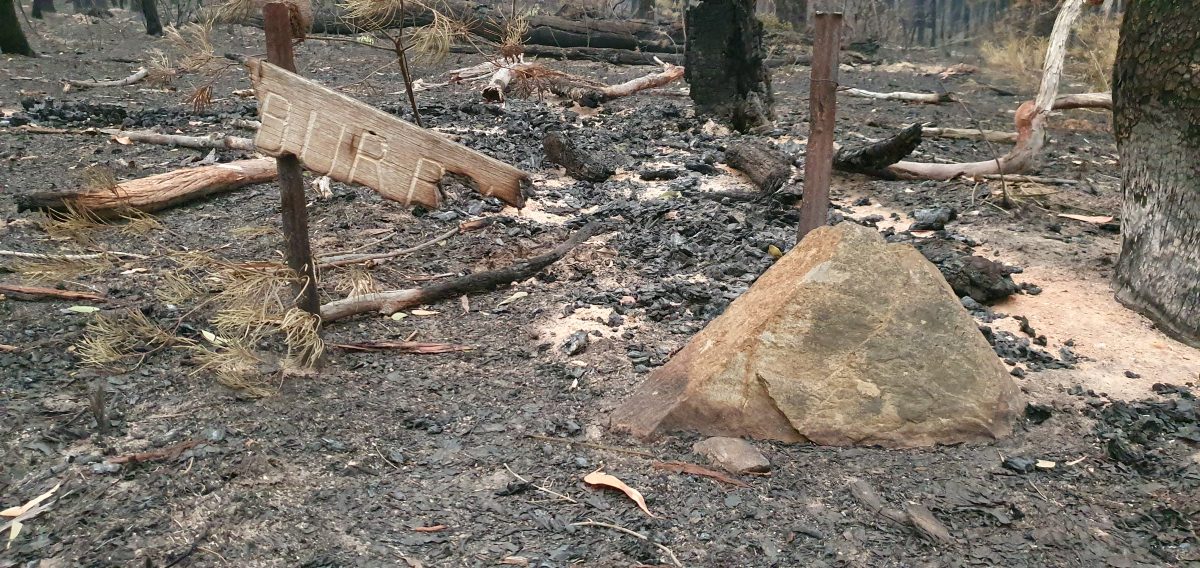
The devastation of the Black Summer bushfires. Photo: Kerrie O’Connor.
Hospital staff remained at their posts as fire approached Batemans Bay and Moruya.
Aged care workers put their vulnerable charges first and emergency crews saved homes while their own burned.
When the power failed to Batemans Bay and Mogo, a stranger, unsolicited, drove an industrial generator from interstate to help.
These are just a few cases of humans showing our best face, and everyone who lived through that few months has their own examples.
Yes, there were incidents of stupidity, recklessness, looting and predatory behaviour – but they were in the minority.
We all kept going until the rains arrived, and then helped each other through the ensuing floods and a pandemic we had had precious little time to heed.
This selflessness is not uniquely Australian.
Around the world, people repeatedly drop everything, crossing political and geographic lines to assist each other.
This behaviour is not the exception, it’s the norm.
We cooperate as families, neighbours and communities, as humanists.
Our leaders? Not so much.
The vast majority of humanity wants a peaceful Earth with a climate our grandchildren can thrive in.
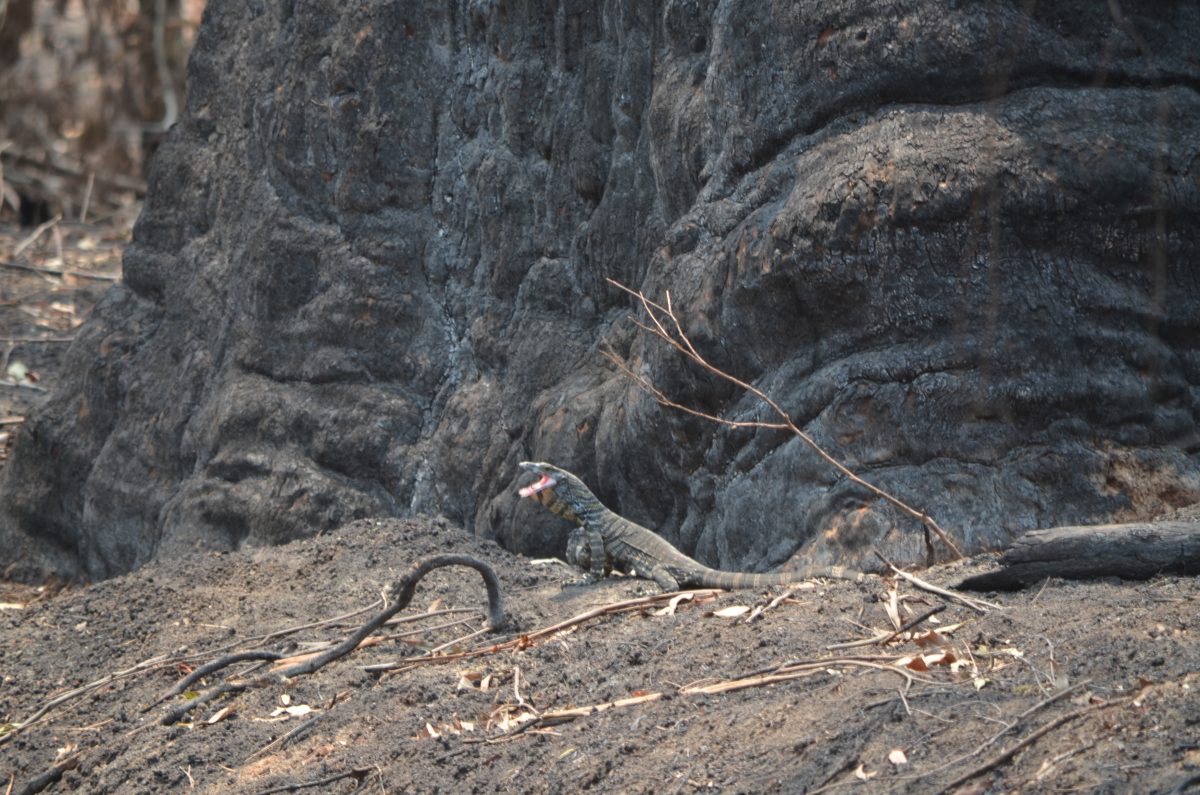
This lace monitor survived Black Summer, but Kerrie O’Connor says we need to exercise more than our reptilian brain to preserve a future for ourselves and the species we coexist with. Photo: Kerrie O’Connor.
In the aftermath of our Black Summer, with lives and 501 homes lost in the Eurobodalla Shire alone, I hoped the conversation about climate change was changed forever.
One look at the world’s headlines tells you this was a forlorn hope.
While our window of opportunity closes, we torch our chances in futile wars.
The armaments industry fiddles the cash register and national budgets, while our planet burns.
When we should be uniting as a species to face a universal threat, our leaders take us into a catastrophic cul de sac of conflict.
There will be no effective action on climate change without a sincere commitment to world peace.
There will be no liveable planet to fight over.
Never mind a dispassionate observer looking down from on high, how will our grandchildren judge us?
Kerrie O’Connor was the editor of the Bay Post, Moruya Examiner and Narooma News newspapers at the time of the Black Summer bushfires and led a team of reporters covering the disaster.







